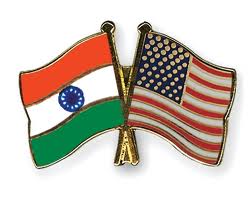Good morning. I am delighted to welcome all of you to the State Department’s Benjamin Franklin Room.
I am especially pleased to welcome our guests from the Government of India, Finance Minister Chidambaram, Minister of Commerce Sharma, and Planning Commission Deputy Chairman Ahluwalia. I also want to acknowledge my colleagues, Treasury Secretary Lew, Commerce Secretary Pritzker, and U.S. Trade Representative Froman.
And finally, I want to thank Ratan Tata and David Cote for their extraordinary leadership of the U.S.-India CEO Forum.
I am very pleased to see the Forum meet again this year. This is an important mechanism for dialogue between our governments and our private sectors. The companies you lead and the people you represent are permanent stakeholders in our relations and a constant driving force behind our knowledge-based partnership – one of the most consequential of the 21st century.
As Secretary Kerry emphasized in New Delhi last month, our commitment to strengthening our strategic partnership with India remains undiminished. The steady convergence of our interests and our values demand it.
But shared values and interests alone will not propel us forward in and of themselves. I always thought that relations between major countries are a little like a bike: Unless you keep pedaling, you tend to fall over.
I’m glad that we’re still pedaling. Last month’s Strategic Dialogue, Vice President Biden’s trip later this month, and Prime Minister Singh’s visit this fall, all provide opportunities for concrete action on our bilateral agenda.
But our ties are too complex, too broad, and too interconnected to be managed exclusively by our governments.
This is especially true in our economic relationship. The full participation of the private sector is indispensible to a sustainable long-term partnership. That’s why this Forum is so important.
In this room alone, you represent over $800 billion in total assets. Two decades ago, two-way trade was about $8 billion a year. Today, we are moving past $100 billion. Today we must ask ourselves, where do we want to be two decades from now, and what do we need to do to get there?
Over the course of the day, your discussions will cover several aspects of the U.S.-India economic relationship. Allow me to suggest a number of specific areas where I believe we can achieve near-term progress and deliver a solid return on the investment in our relationship.
First, we ought to lower barriers for foreign direct investment. The total two-way foreign direct investment between our countries is nearing $30 billion. We can do even better. We are encouraged by the ongoing deliberations in New Delhi to ease offset requirements and raise caps on foreign direct investment. Reforms in FDI and concluding the bilateral investment treaty will be instrumental in taking innovation, economic growth, and job creation to a new level in both our countries.
Second, we need to continue transforming our defense trade relationship. Each of our countries took on a serious commitment to pursue specific co-production and co-development opportunities. This is a significant step that also promises to increase high-technology trade and research and development collaboration in civilian sectors.
Third, we must deliver on the promise of the civil-nuclear agreement. At the Strategic Dialogue, our two governments welcomed the intention of Westinghouse and the Nuclear Power Corporation of India to arrive at a commercial agreement by September. This will be a visible manifestation of our strategic partnership and an important step to securing a cleaner energy future.
Finally, we must keep our countries open to the fundamental driver of this partnership – our people. From Silicon Valley to Wall Street, and Cambridge to Washington, Indian Americans and Indian citizens are making a profound impact here. I understand the concerns in the business community about the potential for increased costs and new visa restrictions in draft versions of the comprehensive immigration reform bill.
As you know, Indian nationals receive the largest proportion of work visas of any group, and I am confident that comprehensive immigration reform will continue to benefit the Indian people and our economies by lifting caps on nonimmigrant visas; expanding opportunities for entrepreneurs and professionals in science, technology, engineering and mathematics; and ultimately deepening and strengthening the bonds between our people.
As I reflect on my more than three decades as a career diplomat, I look at the transformed relations between India and the United States as one of the most significant developments in global politics. We have worked too hard and come too far to lose that momentum now.
There is no doubt that this Forum will do its part to help us pedal ahead. We will depend on you to keep us focused and to help us think bigger and bolder so that we can realize the full potential of this partnership. Our future as strong economic and strategic partners depends on it. We can’t do it without you. Thank you very much.

